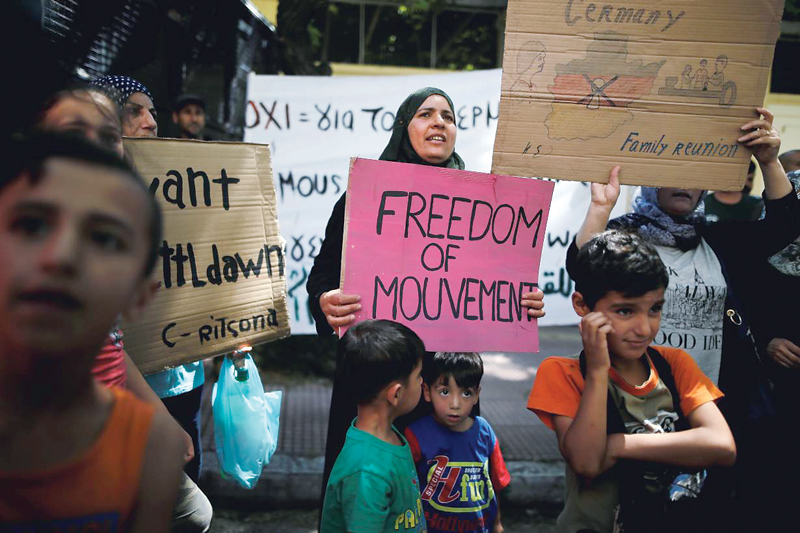

Morgan Meaker -
Firas swapped civil war in Syria for a chaotic refugee camp in Germany. Now he wants a home. Since January 2016, the 28-year-old graduate has lived in three different refugee camps in Germany’s southern Bavarian region and is now worn out and sick of night-long noise.
“I can’t sleep, I can’t study, the fire alarm goes off at least twice a week in the middle of the night,” said Firas, nursing a coffee at his local McDonald’s.
He is a victim of Munich’s acute housing shortage, exacerbated by an influx of migrants from Germany and abroad that stretched the city’s already limited stock and sparked a black market in rentals.
It has also hampered integration for many new arrivals in a country where immigration is a hot political topic.
After fleeing Syria’s civil war, Firas and his wife were keen to re-start their lives by moving into a new apartment.
Although they have replied to more than 100 online apartment adverts, the couple are yet to find a place to live.
“To find an apartment in Munich you have to know someone German or pay money on the black market,” said Firas, who, like all the refugees interviewed, did not want his surname used.
“I don’t have that money and I don’t know someone.” Firas was one of the 280,000 people to register as an asylum seeker with Germany’s Office of Migrants and Refugees in 2016.
When people are granted refugee status, local job centres generally pay their rent until they find work, but this money is capped and competition for cheap housing is fierce. Activists are concerned that a shortage of housing is hindering refugee integration. While apartments are in short supply in major cities across the country, Munich is Germany’s most expensive, in part due to its near zero vacancy rate, according to a Deutsche Bank report.
High building costs and strict regulation impede construction. Yet the city’s population is growing fast as people move in from other parts of Germany, as well as abroad.
Of the 82 million people living in Germany, roughly one in eight is a foreign national, according to the country’s statistics office. Most are from other European Union countries.
According to 2018 research by Deutsche Bank, when the city’s population rises, so do its house prices. Between 2009 and 2014, Munich’s population rose by 170,000, with house prices more than doubling during the same period.
“The situation does not only affect refugees,” said Stephan Duennwald in the Munich headquarters of the Bavarian Refugee Council, whose phone never stops ringing. “It’s difficult to get any kind of apartment in Munich, affordable or not.” In this month’s regional election, polls repeatedly showed that housing was among voters’ top concerns.
With limited social housing, refugees compete with Germans in the private sector but face language barriers and discrimination.
“Landlords want to have a ‘proper German couple’,” says Duennwald. “Because there are so many people searching for apartments, refugees have no chance.”
Research by the Berlin Institute for Integration and Migration found landlords were reluctant to rent to refugees because they worried they would not understand rules, such as when to put the bins out or that Sundays should be “quiet days”.
As refugees feel locked out, their frustration fuels an alternative rental system. Numerous refugees report that black market brokers let people with money skip the queue, by offering to secure them apartments in exchange for a fee. Basel — who asked for his surname to be withheld — struggled for years to find a place to live. He, too, hated camp life.
“They told us ‘you should integrate’ but how? I couldn’t study. Every day, I couldn’t sleep before 3 am. In the camp there were people drinking, fighting, people who were traumatised by bombs,” says Basel, who used to teach Arabic at a university in Syria’s Deir al Zor.
In April 2016, a friend gave him the number of a broker.
Speaking on the messaging app, WhatsApp, the broker said he could find Basel an apartment for 3,000 euros ($3,460).
Basel did not pursue the offer.
“I didn’t want to make trouble as a refugee and of course, I don’t have any work yet, so I couldn’t afford it,” he told the Thomson Reuters Foundation.
Oman Observer is now on the WhatsApp channel. Click here



